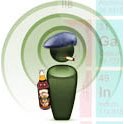Cable company NTL offers its users a seemingly simple solution to online security in the form of its snappily named Netguard.
Netguard provides a complete package of services, including antivirus, pop-up blocker, form filler (form filer, it says on the ntl site), and a privacy manager. If you want to pay for extra components there are Firewall, Anti-spyware and Parental Control modules.
The firewall apparently “blocks other users from accessing your computer while you’re on the Internet”. Surely if you’re sitting in front of your machine you can stop them getting at your keyboard and mouse with brute force? But, yes, I know what they mean.
Parental Control – blocks thousands of inappropriate websites, tools to help you control what tools (like Chat) your kids use and flexible to allow for easy over-rides. I hate that word inappropriate? Certain sectors of society could describe almost any of the billions of pages on the web as inappropriate. Youtube is “inappropriate” if you’re supposed to be doing your assignment or the housework. Again, I know what they’re really getting at.
The Anti-spyware module blocks tracking software that tracks your Internet use and steals your personal information. Tracking software that tracks. Well, I never!
Netguard is £2.99 for 2Mb customers but free for 4Mb and 10Mb customers.
And therein lies, the rub. Always a sucker for a freebie, and running on 4Mb download, last week I thought I’d give Netguard a whirl and then review it here. Within minutes a previously entirely stable Windows XP machine was rendered into a flickering “blue-screen-of-death” brick. It took me a whole working day to resurrect the machine using the recovery discs and I still cannot access the built-in DVD player. So, thanks for nothing NTL!
Turns out I’m not the only one. A friend told me they opted for Netguard when their Norton Antivirus expired and they didn’t fancy paying to renew. Same result – blue screen brick. I suspect we’re not alone, although obviously there aren’t many posts about problems with Netguard on the internet just yet because users cannot get online (they’re machines were rendered into blue screen of death bricks, remember?)
Anyway, my advice for NTL users whatever download speed you have on broadband. DO NOT USE NTL NETGUARD. FULL STOP.
Instead, grab yourself Google toolbar for your browser. Google Toolbar has a form filler. Upgrade to Firefox or Internet Explorer 8 for your browsing as it has built-in pop-up blocking and anti-phishing settings.
Next, get the latest version of AVG Antivirus (free for personal use) and the accompanying AVG Antispyware program. And, finally, the free ZoneAlarm personal edition for your firewall. None of these programs have ever crashed or trashed my PC and as far as independent reviewers go are just as good at their jobs as any paid for software and certainly infinitely better than NTL TrashGuard, sorry NetGuard.
The only thing missing from my list of alternatives is the parental control. But, then I know what pages I personally consider inappropriate and can steer clear. That said, OpenDNS now has a powerful parental filter that can be made to work at the router level without having to install an easy to crack nanny-type program on the computer to which your kids have access.
(Hope you got your machine fixed Lesley, by the way!)
Sciencebase readers may be interested to know that since ntl became VirginMedia there is a newly named version of this software I’ve written about briefly here – www.virginmedia.com/pcguard. I’d be happy to reconsider my position on this application suite if someone from VirginMedia can offer me a test machine to try out the software.
 Infrared and NMR spectroscopy have possibly revealed one of the great secrets of the violin makers Stradivari and Guarneri del Gesu – they used chemical wood preservatives to help preserve their instruments and to improve the tonal quality. The discovery could help modern-day violin makers emulate more closely the properties of irreplaceable violins from the 18th Century and well as providing music conservationists with new insights on how to best preserve the antique instruments.
Infrared and NMR spectroscopy have possibly revealed one of the great secrets of the violin makers Stradivari and Guarneri del Gesu – they used chemical wood preservatives to help preserve their instruments and to improve the tonal quality. The discovery could help modern-day violin makers emulate more closely the properties of irreplaceable violins from the 18th Century and well as providing music conservationists with new insights on how to best preserve the antique instruments. A new study reveals that the static snapshots recorded in protein crystallography may be missing the bigger picture. Investigations of a bacterial protein using cryomicroscopy shows the protein in a balloon-like mode previously hidden from sold state studies. The discovery suggests that techniques complementary to X-ray crystallography are essential if molecular biology is to gain a complete understanding of protein structure.
A new study reveals that the static snapshots recorded in protein crystallography may be missing the bigger picture. Investigations of a bacterial protein using cryomicroscopy shows the protein in a balloon-like mode previously hidden from sold state studies. The discovery suggests that techniques complementary to X-ray crystallography are essential if molecular biology is to gain a complete understanding of protein structure.  Breast cancer remains the most common form of cancer among women but screening with mammography involves exposure to ionising radiation and suffers from a high rate of false positives that then require a definitive assay. In the December issue of the journal Biopolymers, researchers in India describe how Raman spectroscopy might be used to discriminate between normal, benign, and malignant breast tissue and so provide a simple and relatively non-invasive complement to a suspicious mammogram.
Breast cancer remains the most common form of cancer among women but screening with mammography involves exposure to ionising radiation and suffers from a high rate of false positives that then require a definitive assay. In the December issue of the journal Biopolymers, researchers in India describe how Raman spectroscopy might be used to discriminate between normal, benign, and malignant breast tissue and so provide a simple and relatively non-invasive complement to a suspicious mammogram.  Asthma sufferers, non-smokers, and those who really just don’t care for passive-smoking-induced lung cancer can breathe a long sigh of relief as England follows other enlightened states and places a ban on smoking in enclosed public places, such as pubs, clubs, and restaurants, from July 1, 2007.
Asthma sufferers, non-smokers, and those who really just don’t care for passive-smoking-induced lung cancer can breathe a long sigh of relief as England follows other enlightened states and places a ban on smoking in enclosed public places, such as pubs, clubs, and restaurants, from July 1, 2007.